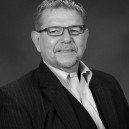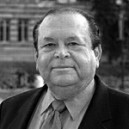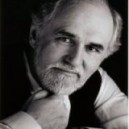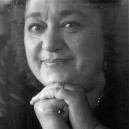Dr. Nina Nabors
Rehabilitation Psychologist
Dr. Nina Nabors currently serves as associate dean in Walden’s School of Psychology and has a bachelor’s degree and a master’s degree in psychology from Illinois State University as well as a doctorate degree in psychology from the University of Florida.
Prior to being appointed associate dean, she served as assistant dean for faculty development in the College of Social and Behavioral Sciences at Walden. Dr. Nabors has taught several courses at Walden since 2001, including Advanced Psychopathology, Diagnosis and Assessment, Multicultural Counseling, and Ethics and Standards of Professional Practice, and she was the coordinator of the Clinical Psychology specialization from 2003 to 2005.
Dr. Nabors is a licensed psychologist in the state of Michigan and board-certified in rehabilitation psychology. Her research interests include rehabilitation psychology; the psychology of women; multicultural psychology; woman/feminist therapy and women with disabilities.
How did you first come about deciding to become a psychologist?
I first became interested in psychology when I took a personality course as an undergraduate. I had always had an interest in human behavior, and the theories I learned in this course about human behavior provided the language to explain what I had always observed. After this course, I changed my major from biology to psychology and pursed a B.S. in Psychology from Illinois State University, then entered an M.S. in Clinical Psychology program there as well. Following two years of work, I returned to graduate school to obtain a doctoral degree in clinical psychology from the University of Florida.
Why did you decide on rehabilitation psychology as your specialization?
I took an introduction to neuropsychology course as part of my master’s program, which sparked my interest in merging psychology and biology. After I graduated with my master’s degree, I sought out clinical experiences in the field by working for two years as a social worker in a rehabilitation hospital for individuals with brain injuries. I learned a lot about rehabilitation, and after interacting with neuropsychologists who worked in the rehabilitation hospital, I decided that I wanted to pursue training in neuropsychology at the doctoral level. I subspecialized in neuropsychology during my doctoral training and took a course in rehabilitation psychology. This helped me to further understand the role of rehabilitation psychologists, and I decided to further specialize in rehabilitation psychology upon graduation.
I really enjoyed the idea of providing treatment and decided that I wanted to go beyond assessing the impact of the injury as a neuropsychologist. I wanted to assist with rehabilitation from the injury or illness to see the outcome of treatment. I completed a three-year post-doctoral fellowship in rehabilitation psychology with one year of clinical work and two years of research. My primary specialization within rehabilitation psychology was traumatic brain injury. Following completion of the post-doctoral fellowship, I obtained board certification in rehabilitation psychology.
Can you describe what kind of work you have done as a rehabilitation psychologist?
During my postdoctoral training, I worked with patients in the rehabilitation hospital with a variety of disorders including traumatic brain injury, stroke, spinal cord injuries, dementia, and orthopedic injuries. I worked as part of a treatment team and provided neuropsychological assessments leading to treatment recommendations, met with the patients to address adjustment to the injury, and also met with caregivers regarding education about the injury and adjustment. My experiences with caregivers sparked my interest in learning more about the impact of brain injury on caregivers. I completed a research study on caregiver burden, which led to presentations and a publication. As I decided to work as an academician following completion of the post-doctoral fellowship, my primary work as a rehabilitation psychologist was as a researcher and working with outpatient clients. In addition to research projects, I worked with outpatient clients to help them adjust to their disabilities and completed neuropsychological evaluations. I have also taught a rehabilitation psychology course to graduate students.
What is an average day like in your field?
An average day depends on the primary setting of the rehabilitation psychologist. Rehabilitation psychologists who work in inpatient and outpatient hospital settings spend their days working with patients and their families on adjustment to their injuries, conducting psychological evaluations to assist the treatment team in developing a plan for assisting the patient with reacquiring lost abilities and making accommodations for what cannot be reacquired. Rehabilitation psychologists in academic and research settings spend their days completing research projects related to rehabilitation psychology and teaching future rehabilitation psychologists or other rehabilitation professionals. There are large-scale longitudinal research projects underway in several rehabilitation hospitals related to traumatic brain injury and spinal cord injury. Rehabilitation psychologists play an important role in furthering the knowledge of how best to assist people suffering from the types of injuries and illnesses served by rehabilitation psychology.
What kind of techniques do you use for patients in order to help rehabilitate them?
Rehabilitation psychologists begin by conducting psychological evaluations to determine what abilities have been impacted by the injury or illness and what strengths remain. If the rehabilitation psychologist is also trained as a neuropsychologist, they will conduct the neuropsychological evaluation and/or a psychological evaluation to evaluate the emotional and behavioral functioning of the patient post-injury or illness. Based on the results of the evaluation, the rehabilitation psychologist may use techniques like cognitive retraining to assist with rehabbing lost cognitive abilities. They may also meet regularly with the patient or client to assist with adapting to the lost abilities using a variety of techniques such as cognitive behavioral therapy. Rehabilitation psychologists work with patients and clients suffering from acute and post-traumatic stress, depression, and other emotional distress related to the injury or illness. In addition, rehabilitation psychologists are vital to assisting patients in coping with the rigorous inpatient rehabilitation process.
What kind of success do you see when applying this form of psychology to a patient struggling with an ailment?
These treatments are often successful in assisting the patient or client with adjusting to their life post-injury or illness. Treatment provides patients with strategies for coping with depression and anxiety and understanding the short- and long-term effects of the injury.
You have been a professor for quite a while. Can you tell us about what it is like to be a professor?
My primary duties as a professor have been related to teaching at both the undergraduate and graduate levels. Currently, I am a faculty member in the School of Psychology at Walden University. I have also served as the associate dean for the school as well as the assistant dean for faculty development in the College of Social and Behavioral Sciences at Walden. I recently returned to Walden as a faculty member and am again focused on conducting research and serving as a mentor for students working on their dissertations.
I have a variety of interests primarily related to the psychology of oppression and multicultural psychology. In my teaching and research, I have melded these interests with my training in rehabilitation psychology. Thus, I have taught courses within my areas of interest, including the psychology of women, prejudice and discrimination, and rehabilitation psychology, and other courses in the standard clinical psychology curriculum related to assessment and intervention. I have conducted several research projects over the years related to the above, which I have presented at national psychology conferences and published in a variety of psychology journals or as book chapters in edited books. For example, I have written book chapters on the neuropsychological assessment of African Americans, womanist therapy with African-American women with disabilities, and more recently the social psychology of stigma, where I discussed the intersections of ethnicity, sexual orientation, and disability. I have published articles on the role of gender and race on caregiver burden for those caring for individuals with traumatic brain injury. In addition to teaching and research, I have also participated in discipline-specific national organizations including the Association for Women in Psychology and the American Psychological Association. I maintained a part-time private practice for several years focused primarily on rehabilitation psychology.
Have you enjoyed working in the field or teaching more?
While I enjoyed working in the field, I have enjoyed teaching more. Teaching allows me the opportunity to reach more people than I could working with individual patients as a rehabilitation psychologist in a clinical setting. I thoroughly enjoy not just providing education to students but also furthering my knowledge from their questions and experiences. In addition, I have enjoyed conducting research that combined my various interests. That said, I most certainly use my experiences in the field to support my teaching and research. My experiences in the field lend credence to the theories and techniques I teach and made the discipline more real to students. I hope that my teaching and research has helped inform the clinical practice within the field of rehabilitation psychology.
What have been some hurdles you have encountered throughout your career that students should expect when getting into this profession?
There are always hurdles to any discipline. The primary hurdles I experienced were a limited number of training opportunities in rehabilitation psychology both at the doctoral and post-doctoral levels when I was pursuing specialized training in rehabilitation psychology. Thus there was significant competition for a small number of sites. Obtaining board certification in rehabilitation psychology was similarly challenging as it was a new certification when I pursued the specialty certification. While I imagine there are more training opportunities available today, I suspect that competition for those sites remains intense. Another hurdle for me was the small number of ethnic minority mentors available while pursuing specialized training. There have been efforts within the discipline to increase the number of rehabilitation psychologists from diverse ethnic backgrounds.
What have you enjoyed most about your profession?
What I have enjoyed most about training as a rehabilitation psychologist was learning about the complicated relationship between the brain and behavior. Rehabilitation psychology afforded me the opportunity to apply knowledge learned in neuropsychological training into practice. I was able to not only see the numerous cognitive and behavioral impairments related to brain injury, for example, but through rehabilitation, I was also able to see the improvements in abilities. Watching the enormous potential of the brain to heal was incredible. I also enjoy being a part of a discipline whose focus is on assisting patients and their families with recovering from what were often devastating injuries or illnesses. I have certainly used my training in other professional pursuits as a clinical rehabilitation psychologist.
Could you possibly share an inspiring patient story with us? Without violating patient confidentiality, of course.
As part of my outpatient practice, I worked with a woman suffering from depression after learning of her diagnosis of multiple sclerosis. I worked with her individually and with her husband in couples therapy to identify the factors related to her depression and how she and her husband could move forward in adjusting to the long-term implications of MS. Using my training as a rehabilitation psychologist, I was able to help my client tap into her own strength and resilience to cope with the effects of the disease. When we ended therapy, she was feeling better about herself and her relationship, and she had developed strategies for coping with the ongoing effects of the disease.
Any final advice for students looking to join this career field?
My advice to students would be to research the current expectations for training to become a rehabilitation psychologist through Division 22 of the American Psychological Association (APA). Search out graduate programs that have at least one rehabilitation psychologist faculty member on staff from whom you can begin to learn the discipline, or at minimum, a training program with a neuropsychology specialization. Research the various post-doctoral opportunities available for training in rehabilitation psychology and review their eligibility requirements. I would also encourage potential students to seek out volunteer opportunities within their communities. If there is a rehabilitation hospital or rehabilitation unit, volunteer to work with the patients to gain experience in working with the population. That volunteer experience might provide a competitive edge when applying to doctoral programs. I also suggest joining APA as a student and becoming a member of Division 22 (Rehabilitation Psychology).





















































